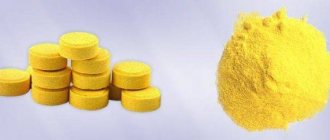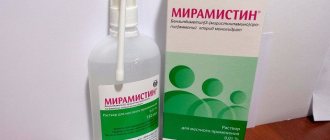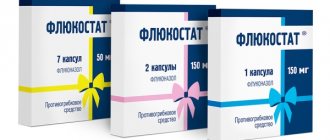During pregnancy, you should not drink chamomile in any form. If they enter the bloodstream, the active components of chamomile preparations can have undesirable effects on the uterus, which can lead to a threat to the pregnancy itself.
Taking chamomile during pregnancy can lead to miscarriage and premature birth
Likewise, pregnant women should not add chamomile to inhalation solutions, since the active components of the plant from the lungs can also enter the bloodstream and lead to similar dangerous side effects.
During pregnancy, chamomile can only be used externally to treat skin and hair. It is also allowed to wash the labia majora with it, rinse the mouth and instill chamomile preparations into the nose and eyes.
Theoretically, a doctor may decide to prescribe a pregnant woman to take chamomile orally if the benefits of such use outweigh the expected risk. However, such a prescription is almost never made, since the benefits of chamomile for any disease are not so significant that one could risk the safety of pregnancy for its sake.
Most authoritative sources on traditional medicine indicate pregnancy as a clear contraindication for taking chamomile preparations. WHO reports that chamomile has no effect on the fetus, but does not recommend drinking it for pregnant women.
Benefit
The plant is recommended for adults and children because of its pleasant taste and smell. When carrying a baby, the use of chamomile should be limited. A small amount is allowed during the second – third trimester.
Is it possible to take chamomile in early pregnancy?
Yes, secretory activity increases, the amount of bile increases, and fermentation in the intestines decreases. The oil contained in the composition stimulates the heart, improves respiratory amplitude, and the condition of the blood vessels of the brain.
The positive effects of chamomile during pregnancy are due to the combination of beneficial components:
- essential oil;
- vitamins;
- flavonoids;
- polysaccharides.
Each of them complements each other, so the result is an anti-inflammatory, bactericidal agent with a calming and analgesic effect. Flowers restore intestinal function and relieve swelling, which is important during the process of bearing a child.
Chamomile during pregnancy is used for treating wounds, rinsing the mouth, washing the genitals, and douching.
External use of chamomile in the first trimester of pregnancy will be an excellent alternative to medications. The plant disinfects bacterial growth sites and helps rapid healing of wounds on mucous membranes and skin.
Chamomile is especially useful for coughs in the early stages of pregnancy, if this time falls in the winter. At the first signs of illness, gargle with the decoction and drink tea. The use of therapy should occur only after the recommendations of a doctor. For colds, inhalations are made using a decoction.
It is better to collect chamomile yourself, dry it and store it in a bag. You can buy dried flowers at the pharmacy, ready-made filter bags. The plant is often used in the form of a decoction to normalize the nervous system and restore the functioning of the gastrointestinal tract.
Harm
Tone and toxicosis. For prevention, herbal drinks are consumed only under the guidance of a doctor. A weak infusion of chamomile tea for pregnant women is prepared in an amount of no more than two glasses per day.
The expectant mother is recommended to drink it occasionally so as not to increase the tone of the uterus. The prepared formulations help the production of estrogens, which cause miscarriage. Often, excessive consumption of the drink leads to aggravation of toxicosis.
Premature birth. You cannot douche with chamomile decoction, as the PH level of the vagina is disturbed. This leads to early opening of the cervix and premature birth. You need to follow the advice in order to avoid excessive agitation, dizziness, tachycardia, and miscarriage.
Allergy. Rashes and redness are rare, but doubts arise when consuming the herb. This is tested by applying the composition to the elbow to observe the skin reaction.
Decoctions and teas from the flowers of the plant help in many situations, however, chamomile causes an allergic reaction, skin rashes and itching. Take with caution in case of increased acidity and diarrhea.
Recipes
Teas. It is convenient to buy the product immediately in bags, rather than in bulk. During pregnancy, chamomile tea is brewed independently. If there are no contraindications, it is mixed with other herbs, honey and lemon are added. It is best to brew the drink in a thermos. To do this, pour boiling water over two teaspoons of flowers and leave for three hours. Drink warm.
Infusion. You can replace the herbal plant with a ready-made chamomile preparation. This is a liquid containing essential oil. The infusion is diluted with water and then used for its intended purpose. However, not everyone can use this type, as sometimes it causes allergies.
Decoction. Chamomile is sold in pharmacies. A decoction for washing is prepared from a tablespoon of flowers and 1⁄2 liters of boiling water. After infusion for an hour, the infusion is filtered. Use warm. The procedure is carried out twice a day. There is no need to rinse the broth with clean water. The flowers are infused for half an hour. It is better to prepare a new infusion before each use. This method is suitable for use throughout pregnancy. The decoction has a deodorizing effect.
Drink chamomile decoction during early pregnancy due to its positive effect on the body, since the drink:
- calms;
- relieves stress;
- fights apathy;
- relieves stomach spasms;
- helps with headaches;
- necessary for bloating, constipation;
- relieves toxicosis and nausea;
- heals wounds;
- relieves joint inflammation.
This is an excellent way to replace drugs with bactericidal and antiseptic characteristics with a natural product. During pregnancy, immunity decreases, so the diagnosis of vaginal candidiasis is often confirmed. According to mothers, chamomile helps get rid of thrush.
To prepare the decoction you will need 20 g of dried flowers, add 0.5 liters of water and put on fire. After five minutes, turn it off and leave to cool. After straining it can be used. You can store the decoction for two days in the refrigerator.
Drink. The 1st trimester is the time when tea is prepared from chamomile and other herbs. These include dill and caraway seeds, mint and valerian roots. The drink will help you calm down and get rid of intestinal problems. A tablespoon of the mixture is poured into a glass of boiling water and left in a water bath for 20 minutes. Take 1⁄2 cup in the morning and evening.
Can pregnant women drink?
Chamomile tea during pregnancy is a medicine that has a complex effect. With regular use of chamomile decoction during pregnancy, the work of the ovaries is activated, and the level of estrogen increases. If you are at risk of miscarriage, you should not drink chamomile tea, especially in early pregnancy. In folk medicine, chamomile was included in decoctions aimed at restoring the female cycle during irregular menstruation. There is a myth that a concentrated infusion of chamomile causes miscarriage. However, in practice this information is not confirmed: It is impossible to induce an abortion in a healthy woman with chamomile decoction.
Most manufacturers of raw materials indicate pregnancy as contraindications, less often the period of feeding. This is due to the insufficient amount of scientific data on the effect of herbal preparations on the fetus and the health of the expectant mother. However, children's teas with chamomile do not have such a contraindication.
Usage
Inhalations. It is recommended to use inhalations for coughs and sore throats. A few flowers are thrown into boiling water, the container is removed from the heat, covered with a towel and breathed over the vapors. Inhalations will calm coughs, remove phlegm, ease breathing, and relieve inflammation. Use one tablespoon of raw material and two glasses of water. It is recommended to add a teaspoon of baking soda to the water.
Baths. Flowers are brewed for genitourinary infections and inflammation. They are used as sitz baths for hemorrhoids. The main thing is that the water is warm. The plant will help with gastritis, which often worsens at this time, with pancreatitis, stomach ulcers and enterocolitis. Chamomile will help improve your general condition and make it easier to tolerate the symptoms of toxicosis.
Rinsing. Chamomile and sage will help get rid of toothache. The herbs are mixed in a 2:1 ratio and a glass of water is added. Use the infusion by holding it in the mouth for a while or by rinsing.
The plant copes well with stomatitis. To rinse the mouth, pour a tablespoon of chamomile flowers into a glass of boiling water. After steeping for an hour, strain and add boiled water to a volume of 0.5 liters.
Washing. It is washing that is recommended to be used instead of medications that cause harm. External use is not contraindicated, and the benefits have been proven. The use of chamomile helps fight inflammatory diseases of the genital organs, as the flowers are a natural antiseptic.
The wide spectrum of action of chamomile allows it to be used during pregnancy. You can get benefits if used correctly. Flowers become dangerous only if there is individual intolerance.
Reading time: 3 minutes
A A
During this difficult period for women, they must deny themselves many things. These restrictions apply to food and various drinks. Therefore, if you like to drink black tea, which contains caffeine, then it is better to replace it with herbal chamomile, because it is absolutely harmless and has a lot of beneficial properties. Thanks to its unique composition, chamomile during pregnancy benefits the expectant mother and her baby. And if you have a cold, then the herbal infusion will be an excellent alternative to expensive medications.
Possible contraindications and side effects
Gargling is prohibited if you are allergic to chamomile!
A pregnant woman must take into account that simple gargling with chamomile cannot replace the entire range of therapeutic actions and medications that are necessary to fight complex infections, such as sore throat. Here the decoction can be used exclusively as a supplement, an additive to a more serious complex treatment as prescribed by a doctor.
The main danger of a herbal remedy based on chamomile is the risk of developing an allergic reaction. Moreover, the fact that a woman previously used this product freely does not mean anything. During pregnancy, the body may react inadequately to the most common things, so before active use you need to carry out a mandatory test.
Since the use of concentrated decoctions internally is contraindicated for pregnant women, when rinsing you just need to be careful not to swallow the decoction.
External use does not have a negative effect on the course of pregnancy or on the well-being and development of the fetus.
Many doctors believe that taking chamomile orally cannot cause harm, as long as there is a healthy, unproblematic pregnancy. However, you must definitely monitor the volume of liquid you drink, even if it is weak chamomile tea.
Runny nose during pregnancy and its treatment by trimester
Benefits of chamomile tea during pregnancy
Chamomile tea during pregnancy is one of the safest drinks, which is prescribed from the first months of pregnancy. Its anti-inflammatory effect helps well in the treatment of small cracks, wounds, and ulcers.
Chamomile infusions are very effective in treating inflammation of the mucous membranes, as rinses, douches and baths.
Chamomile tea has a sedative effect, so it is prescribed to pregnant women for insomnia. Because almost every woman suffers from depression during pregnancy and cannot sleep, chamomile tea will be an excellent help in solving this problem.
During the period of colds, chamomile decoction will help out; start drinking it at the first symptoms of a cold. It can also be used to gargle a sore throat. Pregnant women often experience problems with teeth and gums, and herbal tea kills bacteria in the mouth and strengthens tooth enamel.
Drinking chamomile tea relieves women from nausea in the first months of pregnancy
Chamomile tea even during pregnancy helps restore the functioning of the digestive system. Pregnant women complain of increased gas formation, heaviness in the stomach and frequent constipation. Chamomile tea will help eliminate gases in the intestines, reduce muscle tone and improve your overall condition.
Possible dangers of chamomile gargles during pregnancy
Gargling is prohibited if you are allergic to chamomile!
A pregnant woman must take into account that simple gargling with chamomile cannot replace the entire range of therapeutic actions and medications that are necessary to fight complex infections, such as sore throat. Here the decoction can be used exclusively as a supplement, an additive to a more serious complex treatment as prescribed by a doctor.
The main danger of a herbal remedy based on chamomile is the risk of developing an allergic reaction. Moreover, the fact that a woman previously used this product freely does not mean anything. During pregnancy, the body may react inadequately to the most common things, so before active use you need to carry out a mandatory test.
https://www.youtube.com/watch?v=2HRXrIhjohg
Since the use of concentrated decoctions internally is contraindicated for pregnant women, when rinsing you just need to be careful not to swallow the decoction.
Many doctors believe that taking chamomile orally cannot cause harm, as long as there is a healthy, unproblematic pregnancy. However, you must definitely monitor the volume of liquid you drink, even if it is weak chamomile tea.
During pregnancy, you can gargle with chamomile. Chamomile-based decoctions, diluted infusions, teas and other rinsing agents do not have any systemic effect on the body and do not in any way affect the condition of the fetus.
At the same time, due to some anti-inflammatory and antiseptic properties of chamomile, such rinses can somewhat ease sore throats due to inflammation caused by sore throat, pharyngitis, fungal tonsillitis and other diseases.
Pregnant women can gargle with chamomile, provided that after gargling, a portion of the solution is spat out and not swallowed. If the solution does not enter the digestive tract, such rinses will not have any consequences for the body or the fetus.
The only risk of rinsing with chamomile is possible allergic reactions. They occur very rarely and are manifested by a runny nose, swelling, and rashes on the face.
Because of them, just in case, the first rinses should be carried out with a small amount of solution; the rinses themselves should be 1-2. After the procedures, the pregnant woman should monitor her condition.
If no allergy symptoms appear, you can rinse with a normal amount of solution.
It is known that chamomile decoction and chamomile tea are sometimes drunk during pregnancy to treat diseases of the digestive tract, although in general chamomile is contraindicated in pregnant women due to its ability to stimulate uterine bleeding and some other effects. In general, ingestion of the solution is not advisable.
You can gargle with chamomile during pregnancy as often as required to treat a specific disease. It is only important to remember that too frequent and too intense rinses (no matter with or without chamomile) are in themselves harmful, since due to strong vibration during procedures, the restoration of inflamed tissues slows down.
During pregnancy, you can gargle not only with a pure decoction or infusion of chamomile, but also with its decoctions mixed with sage, oak bark, calendula and other herbs. If the solution is not swallowed, none of these components will cause side effects or affect the mother's body or the fetus.
Fresh leaves of medicinal sage - it is with this that chamomile is most often brewed for gargling
However, you should remember about the likelihood of developing allergic reactions, and carry out the first rinses with a small amount of solution, observing your own condition after the procedures.
Pregnant women are strictly prohibited from gargling with chamomile instead of taking antibiotics for a bacterial infection. Often, women at different stages of pregnancy are afraid to take antibiotics even as directed by a doctor and try to treat the disease instead with rinses with chamomile, sage and other herbal ingredients.
At the same time, it is quite possible to supplement antibiotic therapy with gargles with chamomile.
It is important to understand that gargling with chamomile preparations does not fight bacterial infections, in particular with sore throat or exacerbation of chronic tonsillitis.
Rinsing only weakens the symptoms of the disease and cannot be an alternative to antibiotics, since only the latter can protect a pregnant woman from complications of bacterial infections.
And these complications can be deadly, and the sore throat itself may require much more serious therapy than simple rinsing with chamomile infusion.
Hemolytic streptococcus is the main causative agent of sore throat. Without antibiotic treatment, it can lead to the development of heart disease, glomerulonephritis, joint diseases and sepsis.
In addition, if the illness drags on until delivery, this risks sending the woman in labor to the infectious diseases department of the maternity hospital.
The problem is complicated by the fact that it is impossible to reliably diagnose the disease at home and identify its causative agent. This means that you can gargle with chamomile during pregnancy only after consulting a doctor. Depending on the diagnosis, there may be the following options:
- A viral infection has been diagnosed, in which rinsing with chamomile and using other means of symptomatic therapy will be sufficient;
- A pregnant woman has a sore throat or other bacterial disease, and she can only gargle with chamomile in addition to taking antibiotics;
- The sore throat is due to a fungal infection, and gargling with chamomile can be done in addition to the main treatment with antifungal drugs.
We invite you to familiarize yourself with Indotki when you can cut
In other words, if you have a sore throat during pregnancy, you should definitely see a doctor to diagnose the disease. You need to agree on a schedule for gargling with chamomile with your doctor. You cannot decide on one treatment or another on your own.
The only risk of rinsing with chamomile is possible allergic reactions. They occur very rarely and are manifested by a runny nose, swelling, and rashes on the face. Because of them, just in case, the first rinses should be carried out with a small amount of solution; the rinses themselves should be 1-2. After the procedures, the pregnant woman should monitor her condition. If no allergy symptoms appear, you can rinse with a normal amount of solution.
If the solution is accidentally swallowed, do not worry too much. A small portion of it will not cause harm and will not be dangerous. It is known that chamomile decoction and chamomile tea are sometimes drunk during pregnancy to treat diseases of the digestive tract, although in general chamomile is contraindicated in pregnant women due to its ability to stimulate uterine bleeding and some other effects. In general, ingestion of the solution is not advisable.
Can chamomile be used by women who are pregnant? Medicines based on this plant are not recommended for use internally as part of preparations and infusions. However, chamomile is allowed for local limited use.
WHO, in describing the pharmacological properties of plant raw materials, emphasizes: there is no data on teratogenic (promoting the development of defects in the fetus) or other adverse effects during pregnancy. However, this is explained not so much by the safety of drugs based on chamomile flowers, but by the lack of sufficient research material for analysis.
The use of chamomile-based medicines allows you to:
- eliminate dry mucous membranes;
- reduce the intensity of pain;
- fight the manifestations of the inflammatory process.
It accelerates the regeneration of damaged tissues and has an anti-inflammatory and analgesic effect.
During heating (especially boiling), chamazulene is partially destroyed, so it is recommended to infuse the medicine no longer than the time specified in the recipe and not to heat it again. Although the flower baskets of the plant cannot serve as a replacement for antiseptics and anesthetics for bacterial infections, they successfully complement the therapy prescribed by the doctor.
It should be understood that we are talking about medications without the addition of alcohol. If an alcohol tincture or extract is used, where ethanol acts as an extractant, the safety of therapy for a pregnant woman is questionable.
How to brew chamomile tea
You can buy chamomile flowers at any pharmacy. The box usually indicates how to prepare the decoction. But, if such information is missing, you can brew it like this: pour two teaspoons of dried plant flowers into a container and pour one glass of boiled hot water. Do not pour boiling water into the grass; it is better to wait a couple of minutes after the water boils. Cover the container with a lid and wrap it in another towel for twenty minutes. Strain the infusion and drink warm before each meal. It will also be useful to add honey or dried fruits to chamomile tea.
Chamomile is not only sold in bulk, it can also be purchased packaged in bags. This way you can prepare the drink more conveniently and quickly by brewing a bag with one glass of water.
External use of chamomile
Very often, pregnant women in the early stages are concerned about candidiasis, so the gynecologist may prescribe douching with chamomile decoction. Douching should be carried out only after a doctor’s prescription, so as not to aggravate the situation.
If you are taken by surprise by a cold and have a runny nose and cough, herbal inhalation will help, as it does not produce side effects, unlike taking medications. You can buy a ready-made herbal mixture, which includes other herbs in addition to chamomile. Such procedures using a nebulizer are especially effective.
Pregnant women often experience hair loss and nails become brittle, so we advise you to wash your hair with chamomile infusion and make hand baths. You can rinse your mouth with chamomile tea for stomatitis.
Taking the herb is prohibited if you are hypersensitive. Do not brew a strong infusion and do not abuse it, as it produces estrogens in the body of a pregnant woman. In case of an overdose, a woman may experience headaches, irritability, and skin rashes. You should stop drinking tea if you have gastritis and stomach ulcers.
Pharmaceutical chamomile is a traditional folk remedy that helps with a number of diseases. They treat children, adults and the elderly with it, considering it harmless. Few people know that decoctions of this fragrant plant can harm the health of the mother and fetus in the womb. Is it worth treating with chamomile during pregnancy and how to do it correctly?
Chamomile - healing properties
The chamomile flower is a real storehouse of useful substances. The composition contains useful organic acids, vitamins, polysaccharides, and tannins.
Chamomile is a source of:
- flavonoids and essential oils, which provide an effective fight against viruses and inflammation;
- glycosides that cope with spasms and have a diaphoretic effect;
- fernesene - this substance heals wounds and scars tissue;
- herniarine - another powerful antispasmodic, relaxes and allows you to get rid of unpleasant sensations;
- bisaboloxide A - fights inflammation and spasms;
- vitamins A and C, essential acids and polysaccharides, which stimulate the immune system and strengthen the body.
We can say that chamomile is a universal remedy that should be in your home medicine cabinet. Several medicinal forms of the plant are used in treatment: infusion, extract, tea, essential oil. In addition, dried flowers are included in creams, lotions and shampoos.
When is chamomile used?
Chamomile, used in folk and traditional medicine, helps pregnant women cope with:
- diseases of the stomach, intestines, liver, biliary system;
- cramps, diarrhea and increased gas formation;
- diseases of the genitourinary system;
- ARVI, flu, colds;
- painful menstruation;
- inflammation in the oral cavity (stomatitis, gingivitis, periodontal disease);
- skin problems (acne, burns, frostbite, ulcers, eczema);
- sleep and appetite disturbances, exhaustion and overexertion.
For a woman during pregnancy, chamomile is useful, first of all, as a remedy for eliminating nausea and abdominal cramps. It is recommended to drink the plant extract for inflammation of the joints, skin, genitals and mouth, to get rid of gastritis, colitis, headaches and nervous tension, relieve anxiety, stress, and normalize gas formation. In addition, chamomile is a valuable source of calcium necessary for the expectant mother.
Can chamomile be consumed during pregnancy?
During pregnancy, the health of the woman and the fetus is especially vulnerable. Gargling or nasal rinsing may not be as harmless as is commonly believed.
Drinking or otherwise using chamomile is harmful due to side effects:
- allergies;
- individual intolerance;
- headache;
- weaknesses;
- diarrhea.
Excessive consumption can provoke accelerated formation of the female hormone estrogen. Changes in hormonal levels can lead to severe nausea and dizziness, swelling, a sharp increase in blood pressure, tumors, and profuse rashes. Increased uterine tone can provoke miscarriage or premature birth.
- In the first trimester there is a high risk of losing your baby. A woman may not even understand what happened - in the early stages, a miscarriage is similar to heavy menstruation.
- In the third trimester, especially at 37–39 weeks. In later stages, the drug can provoke early labor.
It is advisable not to rinse your nose with chamomile or add it to the inhalation solution. Why were such restrictions introduced? Once in the respiratory tract, the drug can cause an effect similar to oral administration and cause allergies. It is better to use this product for rinsing and hygiene procedures after consulting a doctor.
Chamomile decoction can be prescribed while the child is waiting for baths and washing, but not for douching. For stomatitis, gingivitis and other inflammations, you can rinse your mouth with this folk remedy; for a runny nose, rinse your nose.
However, you should not completely exclude this useful plant from the list of medicines. After making sure that you are not allergic to pharmaceutical chamomile, drink up to 4 cups of weak tea per week for headaches, stomach pain, or nervous system strain.
What is the effect of gargling with chamomile?
Gargling with chamomile is carried out for two purposes:
- Relieving inflammation of either the tonsils - with tonsillitis or chronic tonsillitis, or the mucous membranes of the throat, pharynx or peripharynx ring with pharyngitis, herpes sore throat, laryngitis. This anti-inflammatory effect helps reduce the severity of pain and accelerates the restoration of inflamed tissues after the end of the disease;
- Direct pain relief. It does not happen immediately and not completely, but with regular, gentle, proper gargling, the pain in the throat weakens and after a few days becomes so mild that the patient no longer pays attention to them.
Additionally, the benefits of rinsing are manifested in the fact that they contribute to:
- Moisturizing the inflamed tissues of the pharynx (which is especially important in case of acute respiratory viral infections and a stuffy nose, when the patient breathes through her mouth, her throat dries out, which intensifies pain and slows down tissue recovery);
- Removing part of the pus or fungal plaque, dirt and infectious agents;
- Cleaning tissues from food debris, which is a medium for the development of pathogenic microorganisms.
With such inflammation of the tonsils, chamomile will be very useful specifically for easing the pain syndrome.
The same effects, by the way, are provided by rinsing the mouth with chamomile if there is pain in the teeth, gums, or papules due to stomatitis. Similar to gargling, procedures in such cases will not provide complete pain relief, but will to some extent alleviate the condition of the pregnant woman.
We invite you to familiarize yourself with Orchis medicinal properties for men
You should not expect that gargling will be able to completely wash away plaque from the tonsils, for example, with a sore throat or infectious mononucleosis. Here, both pus and plaque are found not only on the surface, but also in the tissues of the tonsils and are not completely washed off. They are difficult to remove even by mechanical scraping.
At the same time, there is no need to remove them at all: neither pus from a sore throat, nor plaque from viral or fungal infections are the cause of the disease and do not affect the duration and severity of its course. These formations disappear on their own after the end of the disease and do not require any special measures for removal.
The drug is a liquid extract of chamomile and yarrow - herbs with antiseptic and anti-inflammatory effects. The product also contains calendula concentrates. Thanks to the latter, not only the effect of these components is enhanced, but also a calming effect appears.
An overdose of Rotocan should be avoided due to the fact that it contains alcohol, which when combined with calendula can enhance the calming effect. Its manifestations can be noticeable not only from the expectant mother, but also from the fetus.
How to prepare infusion and decoction for oral administration and rinsing?
For sore throat and other inflammatory processes, you need to gargle with brewed chamomile. For effective and safe treatment, you need to brew flowers in a certain way:
- To prepare the decoction, take 20 grams of dried flowers, pour 0.5 liters of boiling water, and simmer over low heat for 15 minutes. Then the broth should be allowed to brew for 15 minutes and strain.
- To prepare the infusion, take 3-4 teaspoons of dried flowers, pour them into any hermetically sealed container (preferably a thermos), pour 1 cup of boiling water, close tightly, place in a warm place or wrap in a towel. You need to infuse the medicine for 3 hours, then strain and use.
The decoction and infusion should be used warm. Under no circumstances should you use a product that is too cold or hot. It is recommended to gargle with an infusion with the addition of 2 tablespoons of honey or 3 to 5 drops of iodine.
Gargle for no longer than 3 to 5 minutes at a time. Repeat the procedure every 2 hours, 15 minutes before or a quarter of an hour after eating or drinking. Carefully strain the brewed medicine before rinsing - this will help avoid small particles getting on the mucous membrane and vomiting. Store chamomile in the refrigerator for no longer than 24 hours.
Baking soda will help cure inflammation
The familiar baking soda will help cure a sore throat in a relatively short time. Solutions with soda have a pronounced antiseptic effect and reduce the activity of inflammatory processes in tissues. To prepare the medicine, you only need to dissolve 1 teaspoon of soda in 1 glass of warm water. It is recommended to use the resulting medicine ½ after meals 3 times a day.
Since soda greatly dries out the mucous membranes, it is forbidden to exceed the recommended dosage and frequency of taking the medicine. If dryness or ulcers develop in the mouth, stop using the solution and consult a doctor as soon as possible.
Chamomile tea: preparation and daily dose
Chamomile tea helps with colds, acute respiratory viral infections, coughs, poisoning, toxicosis, headaches, intestinal spasms, excessive tension, anxiety, and sleep disorders. Rules for preparing chamomile tea:
- rinse the teapot with boiling water;
- put 1-2 tablespoons of dried flowers in it;
- pour 300 - 500 ml of hot (but not boiling) water;
- close the lid tightly;
- leave to brew for 10 – 15 minutes;
- strain.
An aromatic and tasty drink can be improved with fresh or dried mint, a slice of lemon or natural honey - this drink is a great remedy for coughs. For greater effectiveness, the daily dose of the drink (1 glass) should be divided into 4 parts and drunk half an hour before meals. Tea bags can harm the health of a pregnant woman.
Folk recipes
Over the millennia, people have learned to use chamomile in many different ways.
- For dry and sore throat, brew a tablespoon of herb in a glass of water and add a teaspoon of honey.
- If your sore throat persists, combine chamomile with oak bark, sage, eucalyptus and other extracts.
- Inhalations have a powerful effect. Brew two tablespoons of chamomile in 500 ml of water and breathe in the steam from the solution for 15 minutes. Bend over the vessel and throw a blanket or thick cloth over your head to prevent the steam from escaping. Inhalations are prohibited for purulent sore throat!
- Do foot baths - they also affect the immune system and can help with a sore throat.
- Make a healing oil. Fill a glass jar to the top with herbs and add oil. After the composition has infused for several days, strain off the oil. Then lubricate the sore throat and tonsils with the product, after mixing it with regular vegetable oil in a 1:1 ratio.
- If your throat hurts due to a fungal disease, add a little boric acid to the gargling broth.
- To lose weight, mix a teaspoon of crushed strawberry leaves, St. John's wort, chamomile and birch buds. Pour the finished mixture with 2 cups of boiling water. After 12 hours it can be taken 100 grams twice a day. The decoction accelerates the removal of harmful substances from the body and optimizes salt metabolism.
- For cystitis, mix chamomile with St. John's wort, knotweed, corn silk and cornflower. Pour 400 ml of boiling water over them, strain after an hour. You need to drink immediately after eating.
Other recipes involve brewing chamomile tea. The herb can be combined with mint and lemon balm.
Are there any contraindications?
It is strictly contraindicated to use chamomile if a pregnant woman notices pain or stiffness in the lower abdomen, as well as unusual discharge. Before using infusions or decoctions from this flower, study the list of contraindications:
- Allergies (see also: what can pregnant women drink if allergies occur?). Expecting a child is not the most comfortable period in life; you should not aggravate it with allergic symptoms: itching, rash, red spots.
- Threat of spontaneous abortion. A sharp jump in the hormone estrogen, provoked by chamomile, can lead to miscarriage or premature birth.
- Acute phase of gastric pathology. Gastritis, ulcers or severe and frequent diarrhea may worsen when treated with chamomile.
If you experience any unusual symptoms (abdominal pain, rash, discharge) while taking medicines containing chamomile, you should stop taking the medicine and consult a doctor. It is prohibited to use essential oils and alcohol tinctures while expecting a baby.
A threat to the health and normal course of pregnancy occurs most often in women who do not follow safety measures: they drink too much chamomile teas and decoctions, and brew them very strongly. In addition, women often use chamomile without consulting their gynecologist. Self-medication is always dangerous, and especially during pregnancy. Therapy can only be carried out under the supervision of a doctor. Self-medication can be dangerous - you can harm yourself and your child.
This popular folk remedy will not harm your health if you follow the basic rules for its preparation, administration and storage. Consulting with your doctor, brewing or infusing chamomile according to a prescription, using the resulting product no more than 250 ml per day, carefully monitoring the body’s reactions is a guarantee of your safety and the health of your child.
Carotene, glycosides, phytoncides, pectins, tannins, organic acids, flavonoids, essential oils.
Chamomile is used in various ways:
- rinsing and inhalation - for respiratory diseases, sore throat, acute respiratory infections, ARVI;
- mouth rinse - for stomatitis, gingivitis, periodontitis;
- nasal rinsing, drops - for runny nose and nasal congestion;
- tea - for colds, coughs, as a sedative before bed;
- decoctions, infusions - for gastritis with low acidity, enteritis, colitis, flatulence, to increase appetite and improve digestion;
- douching, washing, baths - for diseases of the genitourinary system;
- external use - for damage to the skin and mucous membranes.
Can pregnant women drink chamomile tea?
During pregnancy, many medications are contraindicated, as there is a high probability of harming the baby. The use of chamomile for medicinal purposes is permitted only on the recommendation of a doctor.
Pregnant women can take weakly brewed chamomile tea if there are no contraindications. Washing with infusion, rinsing, inhalation and external use is allowed.
- take only after consulting a doctor;
- weakly brewed tea is allowed to drink no more than a cup per day;
- if the doctor has prescribed a chamomile decoction, take 2-3 tablespoons warm 3 times a day before meals;
- the course of treatment is no longer than a week;
- It is forbidden to independently increase the dosage and duration of use.
Benefits of chamomile for pregnant women
Useful properties of the plant for pregnant women:
- kills pathogenic microflora that causes thrush;
- relieves nervous excitement, headaches;
- improves sleep, helps with insomnia;
- eliminates bloating, helps with constipation;
- analgesic, wound healing, bactericidal effects;
- normalizes blood pressure;
- helps the cardiovascular system;
- relieves spasms;
- helps with toxicosis;
- lowers body temperature;
- relieves swelling;
- eliminates nausea.
What kind of chamomile can you drink?
There are about 25 types of chamomile. For internal and external use, pharmaceutical chamomile is used. The fragrant variety is used for cosmetic purposes.
Some garden varieties of plants are very similar to medicinal species, but do not have medicinal properties. They cannot be used for treatment. To avoid making a mistake in your choice, it is better to purchase a ready-made mixture at a pharmacy to prepare tea.
Chamomile Tea Recipes
In order for chamomile tea to bring maximum benefits during pregnancy, you need to prepare the drink correctly. In addition to the usual collection, you can buy chamomile in bags at the pharmacy, which is convenient to brew in a cup.
Pour boiling water over the teapot. Place 2 tablespoons of dried plant flowers in it. Pour 250 g of boiling water over it. Cover with a lid and let sit for 10 minutes. Strain and consume a cup once a day. To reduce the concentration, the drink must be diluted with water. You can drink tea with honey, mint or lemon.
A recipe for a healing decoction of chamomile helps with colds, relieves headaches, nausea, and calms. Pour dry flowers (20 g) with cold water, put on fire and bring to a boil. Cook over low heat for 5 minutes. Cover with a lid and leave for 15 minutes. Strain. The decoction is drunk before meals, 2-3 tablespoons three times a day.
Contraindications, restrictions and possible harm
During pregnancy, you should drink chamomile tea in small quantities and only as directed by your doctor. Otherwise, tea drinking can lead to serious problems.
Eating chamomile in large quantities increases the level of the hormone estrogen, which causes increased activity of the uterus. In the early stages of pregnancy (up to the 4th month), if there is a threat of miscarriage, or if there is increased uterine tone, you should not drink chamomile tea.
Microenemas and douching are prohibited due to the risk of disturbing the acidity of the vaginal environment, premature dilatation of the uterus and premature birth.
With improper and long-term use of chamomile, allergic reactions, redness, itching, burning, cough, dizziness, irritability and sleep problems are possible.
Chamomile should not be taken for diseases of the gastrointestinal tract characterized by low acidity.
During pregnancy, it is forbidden to take alcoholic infusions and essential oils from chamomile.
Expert opinion
Certified nutritionist. 5 years of experience.
Nutritionist advice. Herbal teas do not contain caffeine and are therefore considered safe. The question of whether such teas can be consumed during pregnancy worries many, since there is no accurate data on most herbs and their effects on the developing fetus. There are mixed opinions about the safety of herbal teas for both pregnant and non-pregnant women. Chamomile is on the list of safe ingredients and is considered a very beneficial herb. The assumption that there is some danger in its use is explained by the fact that chamomile is included in the general recommendation group of herbal medicines that it is advisable to avoid during pregnancy. The opinion of most practitioners is that chamomile tea can be enjoyed in moderation during pregnancy and breastfeeding.
Other uses of chamomile
Douching.
Chamomile helps cope with candidiasis. During pregnancy, douching with chamomile infusions is used in extreme cases and only according to the indications of a gynecologist. Self-medication can lead to a worsening of the situation, causing dryness, itching and tone of the uterus.
Washing and baths.
Such procedures are safe for pregnant women and help with cystitis or thrush. However, it is prohibited to wash yourself with chamomile infusions every day.
Inhalations.
Steam inhalations with chamomile help with cough, runny nose, pain and dry throat. A safer method during pregnancy is to use a nebulizer. It is allowed to add sage, eucalyptus, coniferous buds, linden, St. John's wort, plantain and marshmallow. Inhalations can only be recommended by the attending physician.
Rinse the mouth and throat.
To treat the mouth and throat for inflammation of the gums and stomatitis, use aqueous decoctions of chamomile.
Nasal rinsing.
Pregnant women with a runny nose are allowed to rinse their nasal passages with a weak chamomile decoction. No more than 5 times a day under the strict supervision of an otolaryngologist. Concentrated chamomile decoction can cause burning and dryness of the nasal mucosa.
Skin treatment.
For various inflammations and injuries, the skin is wiped with a decoction or infusion of chamomile. For oily skin and rashes, you can use a concentrated decoction. The product is poured into ice cube trays, frozen and then rubbed on the face with cubes twice a day.
Hair Care Product.
For weak hair and hair loss after washing your hair, rinse your hair with a warm chamomile decoction. The plant returns strength and shine to hair.
Chamomile is one of the safest plants and is used even in the treatment of small children. Is it possible to drink decoctions and teas during pregnancy? There is no definite answer. A woman is responsible not only for herself, but also for the health of her child, so she must be careful and consult a doctor.
You can learn about the beneficial properties of chamomile in the video below.
It is not for nothing that chamomile is considered the queen of herbal medicine; its scope is incredibly wide. It is used as an anti-inflammatory and aseptic agent, and is excellent for treating gynecological diseases and problems with the gastrointestinal tract. This is not a complete list; moreover, chamomile tea tastes very pleasant and has a slight relaxing and calming effect.
Forms and methods of using the flower during pregnancy
Not all of the numerous chamomile recipes are allowed during pregnancy. For example, inhalations, which are useful in normal conditions, can cause breathing problems in a pregnant woman.
Microenemas with chamomile extract, which normalize metabolic processes, are also prohibited. This is due to the fact that among the unpleasant effects of the plant is temporary bloating. And it can harm the fetus.
But there are a number of uses for chamomile during pregnancy that do not harm the condition of the unborn child or the mother.
Chamomile as an element in the composition of cosmetic products
Body creams, shower gels and shampoos regularly contain chamomile. There is no point in giving them up during pregnancy - chamomile improves the quality of the skin and, according to some observations, helps fight stretch marks typical of pregnant women.
Also, many creams specifically for pregnant women are made with chamomile.
They must be used strictly within the instructions; allergists and dermatologists note that excessive contact with chamomile provokes allergies. And for a fragile fetus, such reactions can be fatal.
Chamomile herbal tea
Chamomile tea is considered the most gentle remedy for pregnant women. It helps during disorders of the gastrointestinal tract, relieves spasms and irritation, relieves even quite severe stress and eliminates nervous excitability.
Another advantage of the medicine is that you can make herbal tea from just one pharmaceutical chamomile, or from several herbal infusions. And there are no strict recipes. It is only important to agree on the algorithms for using herbal tea with a gynecologist or therapist. And, of course, you should not consume more than one cup per day.
Tincture on water
A water infusion for rinsing is prepared quite quickly and simply. A few spoons of dried chamomile are poured into 300-450 milliliters of water at a temperature above average. The liquid must be infused for at least eight hours. Protect it from contamination: the product should be infused under a lid or under stretched gauze.
Doctors insist that during pregnancy you should take a water tincture, not an alcohol tincture. This is due to the fact that alcohol can negatively affect the development of the baby.
Features of the use of the drug during pregnancy are as follows:
- The tincture is used to rinse the mouth and throat. The tincture for rinsing can be kept in the mouth for no more than 20-30 seconds. The solution should then be spat out. In total, up to 300 milliliters of tincture should be used for rinsing, and it is not recommended to use pre-prepared tincture the very next day.
- Gynecologists allow cotton balls or disks to be soaked in water tincture. They can be used to wash problem areas of the body shortly before going to the bath. Both use on the face and wiping the genitals are allowed - chamomile has a good effect on the skin and normalizes metabolic processes at the cellular level.
Chamomile for external use
Quite often, chamomile is used externally: it is used to make compresses, masks, baths, etc. It is excellent for skin and hair care due to its high content of calcium and magnesium, and pregnant women most often suffer from a deficiency of these substances.
Chamomile is not only safe for external use. It is practically the only remedy that can be used by an expectant mother at the initial stage of pregnancy for inflammation of the external organs of the reproductive system.
Expectant mothers can be absolutely calm when planning to use chamomile externally. These procedures will be absolutely harmless, unless of course there is an allergy. To check for an allergic reaction, apply a chamomile decoction to any area of the skin and observe the reaction of the dermis throughout the day.
Salt solutions are a cheap and effective remedy
Gargling with chamomile should only bring benefits, which requires caution from the patient. The raw materials from which the medicinal product is prepared must undergo purity tests, including:
- Determination of pesticide residues. Determination of the content of heavy metals (in particular, lead and cadmium).
- Determination of the presence of residues of radioactive elements (in particular, strontium-90, iodine-131, cesium-137, plutonium-239).
In order for a pregnant woman to be sure that there are no harmful components, it is better to purchase herbal raw materials at a pharmacy, check the composition and labeling of the package. Prepared infusions and decoctions must be stored during the day in a place protected from light, preventing the penetration of foreign impurities.
Only freshly prepared medications should be used. If a chamomile-based product is brewed in large quantities in a thermos, the entire volume must be used before it cools.
It is not recommended to heat cold medicine. The exception is the infusion, which was initially prepared with the addition of cold boiled water - before use it should be heated to a comfortable temperature for rinsing.
Using a solution with furatsilins allows you to effectively fight infectious diseases. This is due to the pronounced antiseptic effect of the drug. The drug effectively destroys the causative agents of most inflammatory throat diseases and prevents their reproduction. It is also one of the few medications that are approved for use during pregnancy.
To prepare a solution for rinsing, you need to grind 2 tablets of the drug into a powder, which is then poured into a glass and filled with hot water. Stir until a homogeneous solution is obtained. After the water has cooled, the resulting medicine can be used according to the scheme - 2 times a day for 2-3 days. If after this time the condition does not improve, you need to change the drug.
It is strictly forbidden to drink furacilin solution - the medication enters the bloodstream of the fetus and has a toxic effect on its body. It is strongly recommended not to exceed the specified periods of use of the drug - this can cause the development of neuritis, vomiting, and an allergic reaction.
The effectiveness of ordinary table salt in the treatment of inflammatory diseases of the throat is very high. They help relieve pain and burning, wash away deposits of dead cells and pus. This is caused by a sharp significant change in the water-electrolyte balance in the oral cavity - the bacteria die in a matter of time.
It is extremely easy to prepare the product - 1 teaspoon of table salt is dissolved in 200 ml of warm still water. For greater effectiveness, you can add 5-8 drops of iodine. Gargle throughout the day every 1.5-2 hours. It is strictly forbidden to use hot water. This may cause severe burns.
We invite you to familiarize yourself with Canned crispy cucumbers - 7 most delicious recipes
Chlorhexidine is used as an antiseptic with a pronounced antibacterial effect. The drug affects most known pathogens of microbial infections. The incidence of side effects or allergies to the drug is minimal.
The preparation of the solution depends on the concentration of Chlorhexidine. If you have the drug at hand in a concentration of 0.05%, do not dilute it. In the case when the concentration of the drug is 0.2%, it must be diluted with warm water in a ratio of 1 to 2. If a cough occurs or shortness of breath occurs, the proportion of water in the solution must be increased.
Chamomile for internal use
Chamomile teas and infusions are actively used for internal use to treat various diseases and simply relax. Pregnant women need to be careful with such drinks. It's all about the fact that they are practically not released during the time, and chamomile is a stimulator of estrogen-producing function. A large amount of these hormones can provoke premature birth or increase tone, which is not at all good when carrying a child. This fact does not mean that pregnant women need to completely abandon the use of chamomile flower decoctions. To avoid unpleasant consequences, you should not drink more than two cups of weak brewed tea per day.
When buying dry chamomile, you should pay attention to the composition of the contents. Nothing should be present except chamomile flowers. Additional ingredients may have side effects that are undesirable for pregnant women.
Nature has provided a huge number of medicinal herbs that can help with various ailments. But expectant mothers should be careful, because every herb has its own side effects. For your own good, before you start taking anything, you should consult a doctor, because no one has canceled the individual factor.
Is it possible to give chamomile to newborns and infants?
The body of a newborn baby is very sensitive to any influences. Many herbs and traditional methods of treatment are contraindicated for children. Chamomile can be used, but with great caution, in small doses.
It has the same effect on a child’s body as on an adult:
- protects against bacteria;
- calms, normalizes sleep;
- strengthens the immune system;
- helps in healing scratches.
Chamomile is an allergen, so make sure your child reacts normally to it. Do an allergy test or give your child a very small dose of the decoction. If rashes occur, treatment should be stopped immediately.
If there is no allergy, the decoction can be used both internally and externally, that is, when rinsing. The problem is that a small child does not know how to gargle. Children learn to rinse with chamomile from about 5 years old. Therefore, brew weak tea and give it to your child. A drink in small doses will help against bloating, colic and intestinal gases.
When preparing a decoction, make the concentration weaker than for an adult. 1 teaspoon per glass of boiling water will be enough. Be sure to let the tincture cool so that your baby doesn’t get burned.











